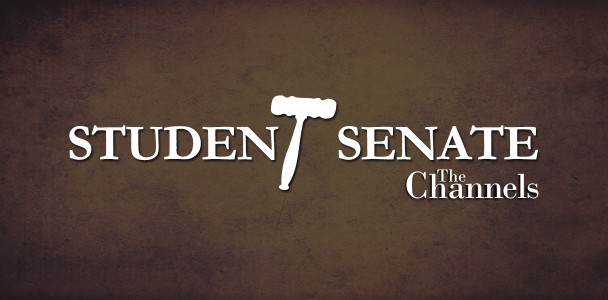In a joint meeting between the Associated Student Government and the Board of Trustees Thursday, the groups discussed the need for civil communication on campus and how City College tried to prevent the student senators from meeting in the Fall.
This was the first meeting between the student government and the board in recent history. The discussion centered on civility (and the lack thereof) on campus, challenges student government has faced this year and challenges that many City College students face that hinder their success.
HEARING OF THE PUBLIC
Four people spoke during public comment at the beginning of the meeting. The first, City College librarian Ellen Carey, said she had received an aggressive private email by a faculty member who questioned her professional integrity as a librarian after she had stated her opinion on an all-employee email chain about invited speaker Michael Shermer.
“This is an example of the kind of hostile communication that has been tolerated on our campus for too long,” Carey said.
The second speaker, Critical Thinking Project President Alex Madajian, identified that the problem of communication on campus is rooted in identity politics.
“The problem I have with identity politics is it allows us to override what facts they give simply because of their identity,” Madajian said. “They might not be a historically marginalized group to have validity.” He was specifically referring to students on campus who are libertarian, conservative, Christian, homeschooled or are Trump supporters. Madajian also spoke to the trustees during their April 26 meeting (see 40:05), saying ideological discrimination is “the most important and rampant form of discrimination” currently on campus.
AN ENVIRONMENT OF CIVILITY?
On the topic of civility, Student Trustee David Panbechi said he wants people to focus on the underlying issues that cause people to act uncivilized.
“To say ‘don’t be angry’ or ‘be more civil’ doesn’t go to the problem,” Panbehchi said, referring to how a number of students, including him, became upset that the college did not acknowledge the kerfuffle that erupted after Shermer spoke at the college or apologize that faculty colloquium speakers were not more thoroughly vetted.
Superintendent President Anthony Beebe responded to Panbehchi by apologizing for not communicating to the campus about what was happening, asking for grace when mistakes are made.
“We have to give each other grace in order to communicate and understand where the other person is coming from,” Beebe said. “I may not say everything exactly right, I may not do everything exactly right, but if I receive a bit of grace, we can still have a conversation without being upset to the point where people are stomping out of the room.”
THE STUDENT GOVERNMENT’S ADVISORS
After the discussion about civility, the groups turned to the obstacles that have been preventing student government from running more effectively. President Josh Villanueva presented a list of seven different issues, and noted that the list was voted on and approved by student government and was representative of the opinion of the group.
First and foremost amongst the concerns is how they feel one of their advisors, Dean Chris Johnson, has become an opponent of student government. City College administration directed the group not to meet in the Fall while a gender discrimination investigation continued. If the group had followed Johnson’s directive, student government might not have met all year, as Villanueva stated the investigation has not yet concluded.
Panbehchi said he does not think City College or Johnson had the legal authority to prevent them from meeting.
“I believe the student government receives their legal power from the California State, and as long as we are within our bylaws and our legal obligations we are not breaking any rules, I believe we have the right to assemble at any point in our terms,” Panbehchi said.
Patricia Stark, advisor for The Channels, decided to speak about the student government advisors also, saying she has waited for 25 years to address this topic.
“The student senate needs to have some informed, expert advising, and the college needs to pay for it,” Stark said. “I think one of the reasons The Channels has succeeded year after year is because the college has been very generous in providing a content expert to guide them, to warn them, to be accountable.”














